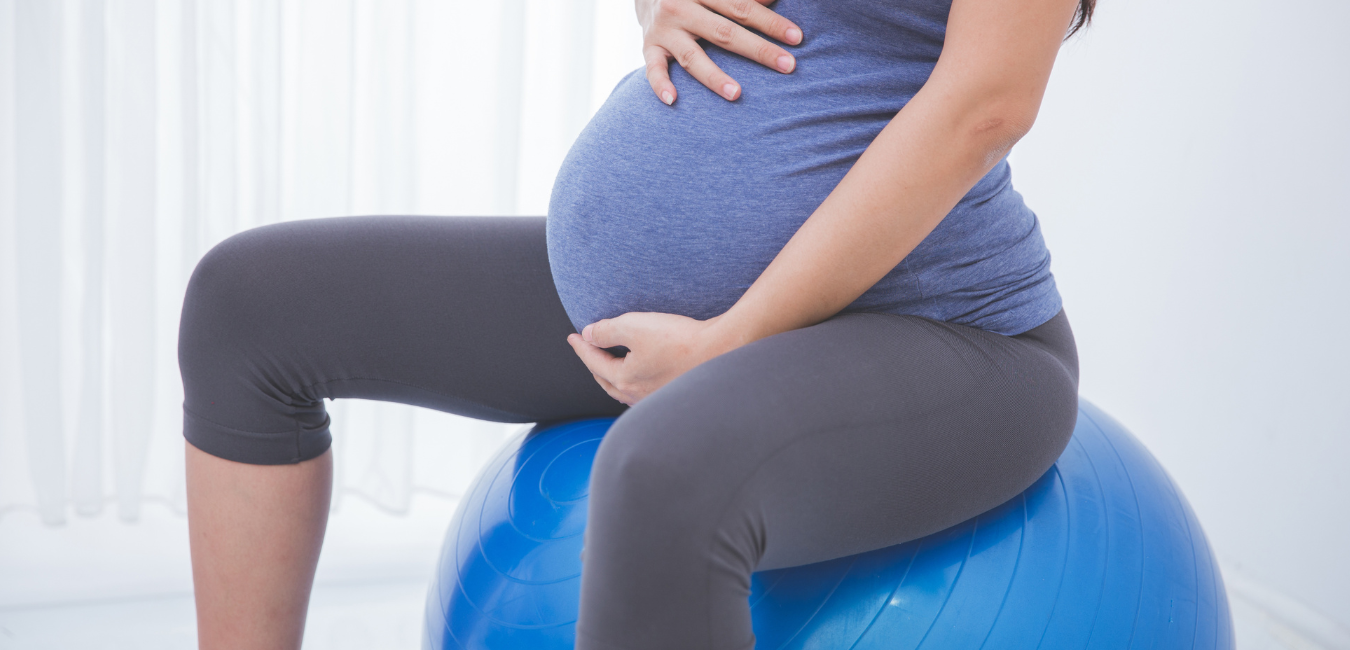By Tash Barry- Physiotherapist
Exercise during pregnancy is important as it allows you to maintain (or improve!) your health and fitness as you nurture your growing child. With lots of information available at the touch of a button, we understand it can be overwhelming, and difficult to know how to safely exercise during pregnancy. So, here are some guidelines on how to get you started.
It’s important to note, these guidelines are based on low-risk pregnancies. If you have pre-existing medical conditions or a high-risk pregnancy, this does not always mean you should completely avoid exercise. We do however strongly recommend you consult with a health practitioner (including our physiotherapists or your obstetrician) for individual guidance on how to proceed.
Benefits of exercise during pregnancy ✅:
- Prevent urinary incontinence
- Prevent lower back pain
- Reduce your risk of developing a Rectus Abdominus Diastasis (abdominal muscle separation)
- Reduce symptoms or risk of depression and anxiety
- Prevent excessive weight gain
- Increased self-esteem and psychological benefits related to body image
- Improve or maintain a level of cardiovascular fitness
- Increased energy levels
- Reduce requirement for insulin with gestational diabetes
- Improved overall well-being
And in case we haven’t convinced you yet…regular exercise during pregnancy has also been associated with shorter and less complicated labour, as well as fewer complications!
Types of exercise
The current guidelines recommend a combination of aerobic and strength exercise on most, preferably all days of the week. If you have been sedentary in the lead up to your pregnancy, we recommend starting with low intensity exercise such as walking in shorter bouts (15-20 minutes) and gradually building up to 150-300 minutes of exercise a week. If you are accustomed to high intensity exercise, there is no evidence to suggest that continuing with this will be harmful, however you made need to adjust your routine based on comfort and tolerance. Be mindful of excessive exertion, adequate nutrition, hydration, and avoidance of overheating though. We discourage contact and high-risk sports during all pregnancies, for the risk of potential abdominal trauma.
Intensity of exercise
Moderate intensity exercise is that which requires a moderate amount of effort and a noticeable increase in your heart rate.
Target heart rates for pregnant women are:
Normal-weight Inactive/overweight
<20 years 140-155 bpm
20-29 years 135-150 bpm 102-124 bpm
30-39 years 130-145 bpm 101-120 bpm
>40 years 125-140 bpm
A more practical way to measure intensity is using the 6-20 scale below and measuring rate of perceived exertion. Moderate intensity is between 12-14 on the scale. For women who are accustomed to high intensity exercise, a rating of 15-16 may be appropriate.

Examples of exercise 🧘♀️🏊♀️💃🚶♀️🚴♀️
Examples of moderate intensity exercise include:
- Pilates
- Yoga
- Swimming (avoiding breaststroke kick)
- Cycling
- Strength training
- Brisk walking
- Dancing
- Gardening
- Housework and domestic chores
- Carrying or moving loads of less than 20k
Considerations when exercising
To allow for your baby to grow, many changes happen within your body including an increase in blood volume and weight, an altered centre of gravity which can affect balance, coordination and you may experience joint pain such as in the lower back or pelvis.
You may need to avoid single leg activities if you are experiencing pelvic girdle pain (You can check out our blog post on ‘What happens to my body during pregnancy’ to read more about the changes that occur, and when to seek help, or our ‘Pelvic Girdle Pain in Pregnancy’ blog post for specific treatment of this). Stretching shoulder be performed with care because of increased ligamentous laxity, as should weight bearing activities involving frequent direction change.
There is also an increase in your resting heart rate and a decrease in blood pressure especially in the second and third trimester. This can evoke dizziness or fainting, so we recommend you avoid exercising lying flat on your back beyond 12 weeks, avoid rapid posture changes (including inversion), and closely monitoring your body temperature and hydration levels to prevent overheating. A cool down is important, and you should never stop exercise suddenly.
Morning sickness and hyperemesis can contribute to fatigue, exhaustion, or malnourishment, so it is important to consult with a health practitioner for advice on exercising if this relates to you.
Wear appropriate footwear or no shoes if you are experiencing swollen feet and avoid high end balance training as your centre of gravity has shifted which could potentially lead to a fall if challenged.
When to cease exercise
Expectant mothers should be conscious of any complications that may arise during exercise, and cease immediately to seek medical attention if experiencing:
- Bleeding
- Sudden swelling
- Decreased foetal movements
- Abdominal and back pain
- Joint pain
- Chest pain
- Unexplained shortness of breath
- Dizziness, feeling faint, headaches
- Calf pain, swelling, redness
When to consult a health professional
By starting slowly and gradually increasing your exercise, it is easier to be mindful of how you are feeling. We recommend consulting with a health professional prior to exercise if you:
- Have a high risk pregnancy
- Are overweight or obese
- Have not been exercising in the lead up to your pregnancy
- Are experiencing pelvic floor symptoms (including leaking with coughing, sneezing, laughing or lifting)
- Have any musculoskeletal pain (including pelvis, lower back, wrist, rib)
- Are experiencing moderate to severe morning sickness, or hyperemesis
- Have a prior injury limiting your ability to exercise
Pelvic floor exercises
Along with regular exercise, exercising your pelvic floor is just as important. Studies show that increased fitness in combination with pelvic floor exercises can assist in improved recovery following delivery.
We recommend you see a physiotherapist for a pelvic floor assessment to ensure you are activating the correct muscles, and to individualise this program to you. But you could get started with:
- X 10 fast repetitions of your pelvic floor
- Hold a submaximal contraction for 60 seconds
- Do 8 of 8 second holds at maximum strength
Note: Some women experience an overactive bladder and may require treatment focussed on relaxing their pelvic floor rather than strengthening. We recommend you consult with a Women’s Health trained physiotherapist for advice on this.
Pregnancy classes
At Higher Function, we offer pregnancy and postnatal classes which take into consideration the changes during pregnancy, and the benefits of certain types of exercise. This small group class is run by experienced physiotherapists ensuring you are exercising in a safe environment. This is a combined prenatal and postnatal class incorporating exercises using both matwork equipment and our Pilates Reformer. Bring bub along! A Clinical Exercise Assessment with a physiotherapist is required prior to starting classes.
This class is claimable from most Private Health Insurers using item code 561 (physio class therapy) 595 (prenatal class) or 596 (postnatal class). Get in touch with us today to join in!
References
https://www.cdc.gov/nccdphp/dnpa/physical/pdf/pa_intensity_table_2_1.pdf
https://www.racgp.org.au/afp/2014/august/exercise-in-pregnancy/


